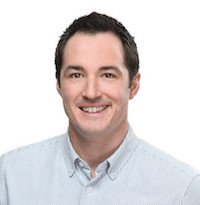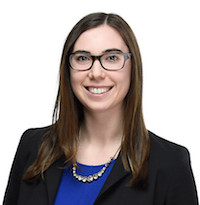News
» Go to news mainSRES graduates tackle renewable energy
 |
 |
Judging by Michael McKinnon’s and Sarah Rosenblat’s undergraduate majors, it might seem surprising that they now work for the same organization. McKinnon completed a Bachelor of Commerce degree at Mount Allison University, while Rosenblat majored in geography at Queen’s University. Now, Rosenblat and McKinnon both work as Project Coordinators for SWEB Development LP, helping to develop renewable energy projects throughout North America. The road that took them there led through the School for Resource and Environmental Studies (SRES), where both students recently completed the Master of Resource and Environmental Management (MREM) program.
Despite their different backgrounds, McKinnon and Rosenblat share an interest in sustainability and renewable energy. A minor in geography increased McKinnon’s interest in how humans interact with the environment. “By the end of the program,” he says, “I knew I wanted to pursue a career that focuses on finding mutually beneficial opportunities for business and the environment.” After his commerce degree, McKinnon worked at Natural Resources Canada and then decided to enrol in the MREM program, he says, “to explore opportunities and expand my understanding of environmental issues.”
While the intersection of business and the environment led McKinnon to SRES, Rosenblat came to the school because of her interest in geography and the environment. At Queen’s, where she minored in environmental studies, she also earned her geographic information science (GIS) certificate, which gave her useful tools for her MREM studies—and her subsequent employment.
Classes in the MREM program focus on issues relevant to working in today’s environmental sector, say the two alumni. “The projects we had in MREM were often based on real-life professional tasks,” explains Rosenblat. “I was able to enter a simulated professional setting, while still having the safety of making mistakes in an academic setting.” MREM’s core courses teach foundational topics such as the biophysical, legal, and sociopolitical aspects of environmental management. These subjects are essential, but Rosenblat and McKinnon note that the MREM electives were also vital to their education. “Having electives allowed me to really mould my degree into what I would get the most out of and find most interesting,” says Rosenblat. She took the opportunity to learn about integrating environmental interests with planning and development. McKinnon focused on energy-related issues. “It equipped me with knowledge that proved to be useful in energy efficiency consulting and now with renewable energy development,” he says.
When McKinnon and Rosenblat graduated from SRES in 2015 and 2016, respectively, both were already aware of SWEB. McKinnon had learned about the company from Jason Parisé, another MREM student who interned there before graduating and joining the company full-time. Rosenblat says simply, “I knew about the organization because I’ve been interested in the renewable energy sector for a while.” The students both became SWEB employees last summer.
SWEB’s mission is to advance the transition away from fossil fuels to renewable energy resources, with a current focus on wind energy development. SWEB operates mainly in Nova Scotia, where it has built over 39 megawatts of wind energy projects, but the company has also built 9 megawatts in the U.S and is a subsidiary of Austrian-based W.E.B. Windenergie AG, which has created approximately 470 megawatts of wind energy in Europe and North America. The company works with community stakeholders on all of its projects, something that appealed to both McKinnon and Rosenblat. “SWEB maintains a strong focus on gaining social license before moving forward with projects,” says McKinnon. “It’s exciting to see projects develop in communities where strong relationships are being established.”
While each has the same job title—Project Coordinator—the work they do for SWEB is fairly different. “I work on creating partnerships with municipalities, aboriginal groups, landowners and other stakeholders,” says McKinnon. He creates proposals and manages projects through the development phase; he also performs site visits during construction. Rosenblat’s contributions are to a different aspect of development: “Because of my GIS background, I do quite a bit of mapping for various projects in different jurisdictions,” she says. Rosenblat works on U.S. wind energy project development, and tracks project statuses and output to report to their Austrian headquarters. She has also learned new wind analysis software on the job to assist in developing more projects.
Rosenblat and McKinnon express similar reasons for wanting to work with SWEB (in addition to the company’s focus on community). “To me, it is important to ensure that we are developing renewable power generation so that we can reduce our reliance on harmful sources in the future,” says Rosenblat. “SWEB is an excellent blend of the three pillars of sustainability: economy, society and environment.” That combination also inspires McKinnon. “Working for SWEB allows me to continue turning opportunities that are mutually beneficial for business and the environment into a reality,” he says.
Currently, three SRES alumni work with SWEB, and it seems likely that more will join SWEB and organizations like it. McKinnon and Rosenblat both see themselves working in the renewable energy sector, and in SWEB, for the foreseeable future. McKinnon, especially, is a “proud Maritimer” who wants to contribute to smart energy development in his region. With different backgrounds and skill sets, these two SRES graduates have a common goal to improve the environment. “The renewable energy sector is so interesting, as it is constantly growing and evolving,” says Rosenblat. “It is important to focus on these alternative energy sources—especially when they involve our community.”
Recent News
- The Bachelor of Management is 25!
- From MBA classroom to the frontline of healthcare
- Yirun Wang (BMgmt’24) builds a community while earning his degree
- Building a path forward with work integrated learning
- Alum finds ways to have a big impact on health and students
- Two exciting milestones, one amazing Dal Business Networking Night
- Q&A with Instructor Nicole Kabalen: Why she started teaching and how she engages students
- Q&A with Abdullah Al‑Shaghay: Returning to Dalhousie to share his passion for math
